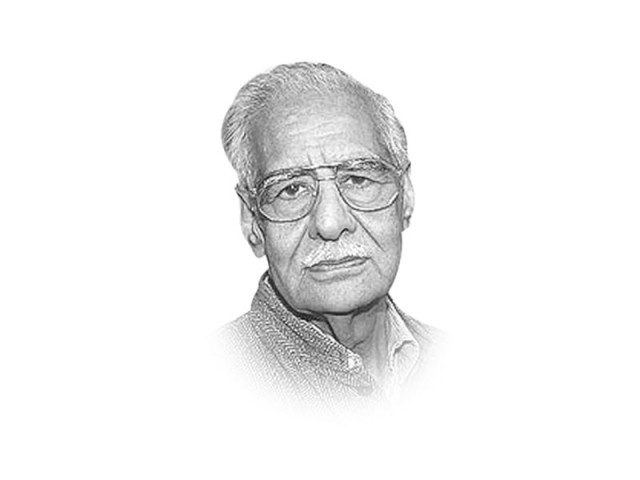71 years on, frosty relations continue
Barbed wires are on either side of the border preventing people’s passage into each country with visa restrictions

The writer is a syndicated columnist and a former member of India’s Rajya Sabha
This was precisely what happened. On August 17, two days after independence some Muslim gentlemen came to us and made the request to leave the house. I asked one of them, “Where do we go?” He gave the keys of his house at Jalandhar and said, “We will not have to do anything because his house was well furnished and ready for occupation. We declined the offer.”
But after they left, all of us sat around the dining table to decide on the future. I told them that I was staying back in Pakistan and they said they would be going to Amritsar and come back once the disturbances were over. We agreed that the scenario, however dismal, we could be back, at the most after a month. My mother remarked when she was locking the house that she had a strange feeling as if they we were not coming back. My elder brother agreed with her.
I packed one traveler and a shirt in a blue canvas bag and parted saying, “We will meet at our maternal uncle’s place at Darya Ganj in Delhi.” My mother gave me Rs120 to sustain myself until we met in Delhi. My father had made my journey easier. He told a brigadier, who was his patient, to take his three sons across the border. He said he had no space in his Jonga and he can accommodate only one of us. The following morning I was pushed into his vehicle. I could not conceal my tears and wondered whether we would all ever meet again.
The journey from Sialkot to Sambrawal was uneventful. But from there, the caravans of people from either side, the Hindus moving to the Indian side and the Muslims to the Pakistani part, were on the move. Suddenly, our Jonga was stopped. An old Sikh stood on the way and begged us to take his grandchild to India. I told him politely that I was still studying and would not be able to carry his grandson, however fair his request was.
The old man said that he had lost all his family members and the only survivor was his grandson. And he wanted him to live. I still recall his tearful face but I had told him the facts. How would I bring up the child when I myself was not sure about my future? Then we moved on. And, as we travelled, we could see the scattered luggage all over but the bodies had been removed by the time. The stench, however, was very much in the air.
At that time, I promised myself that I would try to foster good relations between the two countries. That was the main reason why I started lighting candles at the Wagah Border, a process that began some 20 years ago. It was a small movement with just 15-20 people to begin with. Now roughly 100,000 people on this side and the people of Pakistan, though in limited number, followed suit and have also joined the cause.
Peoples’ enthusiasm knows no bounds. But the governments are in the way. There is curfew in the entire area and one has to take permit to reach the border. I have written to Home Minister Rajnath Singh to instruct the authorities, both the Border Security Force and the Central Reserve Police Force, to allow us to reach the zero point, where the steel gates check the movement into either side, for lighting candles.
This exercise is confined to few Individuals. I wish that the border could be made soft and the situation became calm so that enmity between the two countries is banished. I was on the bus that prime minister Atal Behari Vajpayee rode to Lahore. There was bonhomie on both sides and I thought that the trip would resume a regular exchange of trade, joint ventures and people-to-people contact between the two nations.
But I feel disappointed when I see the barbed wires on either side of the border preventing people’s passage into each other’s country with so much of visa restrictions. In the past, intellectuals, musicians and artists could meet and hold joint programmes. But today, even that has stopped, with the governments showing rigidity in issuing visas. There is practically no contact either at official or non-official level.
Prime Minister-in-waiting Imran Khan has said in an interview that he would ensure trade and business. My only worry is that his proximity to the establishment may not allow him to carry out his promises. But, maybe, that angle is being exaggerated.
New Delhi should make an effort. But it has adopted a harsh stand not to negotiate with Islamabad “until Pakistan stopped providing shelter to the terrorists and punishing those who were instrumental in Mumbai blasts”. Imran Khan should take the initiative, keeping in view India’s demands for any cordial relations between the two countries.
Published in The Express Tribune, August 12th, 2018.
Like Opinion & Editorial on Facebook, follow @ETOpEd on Twitter to receive all updates on all our daily pieces.















COMMENTS
Comments are moderated and generally will be posted if they are on-topic and not abusive.
For more information, please see our Comments FAQ